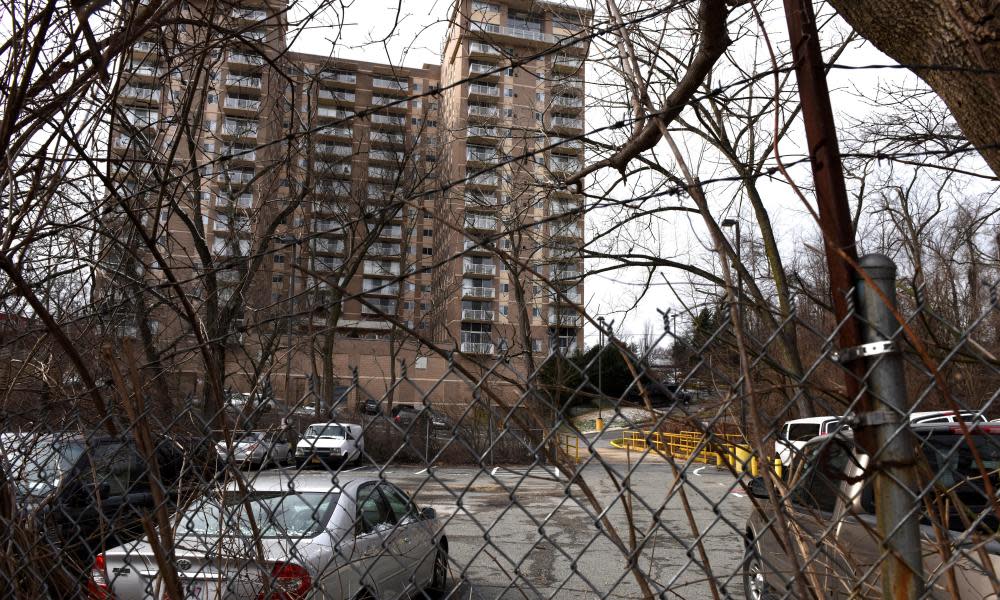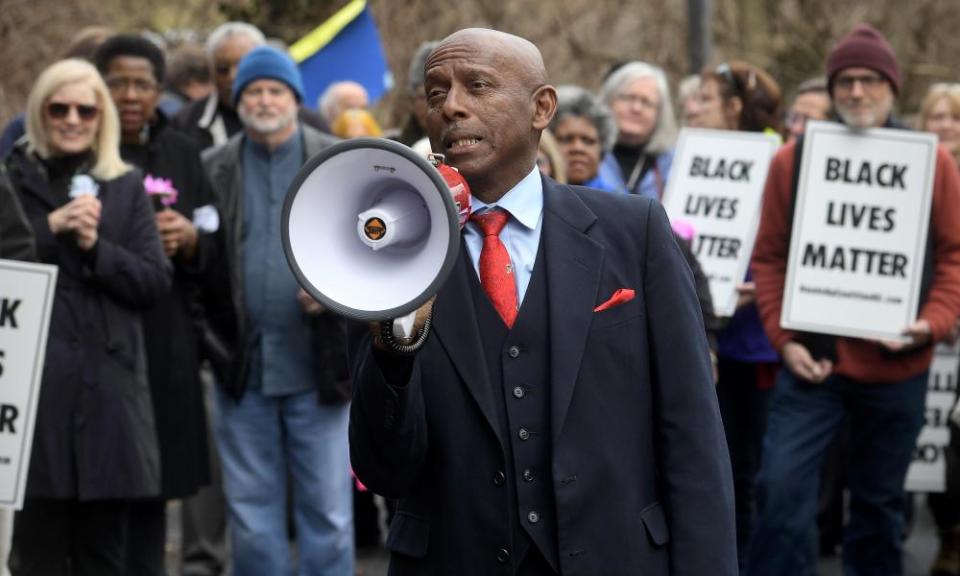Judge blocks sale of apartment complex built on top of historical Black cemetery

A judge has blocked the sale of a suburban apartment complex in Maryland that was previously used as a cemetery for freed Black slaves, arguing that “many bodies likely still remain on the property”.
The potential $50m sale of Westwood Tower in Bethesda, Maryland, 30 minutes outside of Washington DC, to the investment firm Charger Ventures was halted after local activists opposed the deal, reported NBC and Bethesda Magazine.
The activists had argued the complex was built on top of a historical gravesite called the Moses Macedonia African Cemetery in the 1960s.
“These are people who were so oppressed and so discarded and so disrespected in life, and now, even in death, they meet the same fate,” said Marsha Coleman-Adebayo, president of the Bethesda African Cemetery Coalition, in a previous interview with NBC.
The BACC filed a lawsuit against the Montgomery County Housing Opportunities Commission (HOC), saying that the commission did not get court approval to sell the apartment complex, a procedure that is normally required with cemetery property.
On Monday, Judge Karla Smith of the Montgomery county circuit court granted a preliminary injunction against the Westwood Tower sale while also denying a request from the HOC to dismiss the suit following an 11-hour hearing in the circuit court.
Smith’s decision allows for the sale to be stopped until the lawsuit is completely resolved. In her decision, Smith wrote that there was public interest in preserving the gravesite and that the current contract between the HOC and Charger Ventures did nothing to ensure the cemetery’s protection.
“Regardless of whether Charger decides to keep the parking lot, build on the lot, or dig up the lot, bodies of African Americans remain there,” Smith wrote, also noting that “the court has an obligation to ensure that such resting place is respected”.
On 1 September, Smith had temporarily halted the sale of the apartment complex by granting the plaintiffs a temporary restraining order. A restraining order has a similar effect to an injunction but is often used as a more emergency intervention, according to Bethesda Magazine.
The group, mostly made up of church members from Macedonia Baptist church and descendants of those buried, have been working for years to have the burial ground memorialized. A 2017 archaeological study of the graveyard by the Ottery Group, an archeological consulting firm, concluded that burials were probably still intact and recommended that no ground disturbances should be made to the site.
The cemetery is also what remains of Bethesda’s River Road community, a historically Black area in Bethesda that existed until the 1960s when white developers pushed out the remaining Black families.

“I call River Road the ‘lost colony’,” said Harvey Matthews Sr, 72, who was raised in River Road. “I lived there, I was raised there, I went to school there, but it’s gone and forgotten. All those whites who live in the surrounding area don’t have any knowledge of the black folks who lived there, and people need to know about that.”
Matthews’ testimony of seeing many gravesites in the Moses cemetery as a boy was used in preliminary injunction hearing.
“They were finding body parts – arms, legs,” Harvey testified, also noting that if the gravesite were to be dug up today, “body parts will jump up at you like popcorn”.
Steven Lieberman, an attorney for the BACC, said that the county could choose to appeal Smith’s decision or attempt to obtain court approval of the cemetery sale, but also noted that this victory could influence decisions in other places regarding the sale of burial grounds.
“Very often, these burial grounds are under a highway bypass, or they’ve been plowed under for other uses, and this really does give people a road map in how to address these issues,” Lieberman told NBC.

